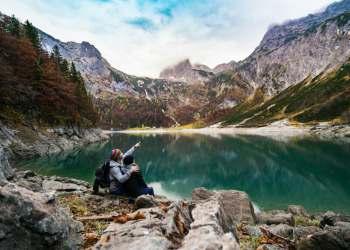Backpacking offers a unique opportunity to disconnect from the hustle and bustle of everyday life and immerse oneself in the beauty of nature. Whether you’re embarking on a weekend getaway or a multi-day expedition, proper gear and preparation are essential for a safe and enjoyable experience in the wilderness. In this article, we’ll explore the essential gear and tips for backpacking adventures to help you make the most of your outdoor escapades.
1. Choosing the Right Backpack
The cornerstone of any backpacking adventure is, of course, the backpack itself. Choosing the right backpack is crucial for comfort, organization, and weight distribution. Consider factors such as capacity, fit, and features like adjustable straps and ventilation systems when selecting a backpack that suits your needs.
2. Clothing and Footwear Essentials
When it comes to clothing and footwear for backpacking, versatility and durability are key. Pack lightweight, moisture-wicking clothing that can be layered for warmth and protection against the elements. Invest in sturdy hiking boots or trail shoes with good traction to keep your feet comfortable and supported on uneven terrain.
3. Shelter: Tents and Sleeping Bags
A reliable shelter is essential for a good night’s sleep in the wilderness. Choose a tent that is lightweight, weatherproof, and easy to set up. Pair it with a quality sleeping bag that offers the right level of insulation for the conditions you’ll be facing.
4. Navigation Tools: Maps and GPS
In the wilderness, reliable navigation tools can mean the difference between getting lost and staying on course. Bring along detailed maps of the area you’ll be exploring, as well as a GPS device or smartphone app for added precision.
5. Food and Water: Planning and Preparation
Proper nutrition and hydration are essential for staying energized and hydrated on the trail. Plan your meals ahead of time, opting for lightweight, calorie-dense foods that are easy to prepare. Bring along plenty of water or a water filtration system to ensure a safe and ample water supply.
6. Safety Gear: First Aid Kit and Emergency Supplies
No backpacking trip is complete without a well-stocked first aid kit and emergency supplies. Include essentials like bandages, antiseptic wipes, pain relievers, and a multi-tool in your kit, and be prepared for emergencies with items like a whistle, emergency blanket, and fire starter.
7. Lighting: Headlamps and Flashlights
When the sun goes down, a reliable source of light is essential for navigating the trail and setting up camp. Pack a lightweight headlamp or flashlight with extra batteries to ensure visibility after dark.
8. Hygiene and Sanitation
Maintaining hygiene and sanitation in the wilderness is important for both your comfort and health. Pack biodegradable soap, hand sanitizer, and a trowel for waste disposal, and practice Leave No Trace principles to minimize your environmental impact.
9. Leave No Trace Principles
Speaking of Leave No Trace, familiarize yourself with these essential wilderness ethics before embarking on your backpacking adventure. Follow principles like packing out your trash, staying on designated trails, and respecting wildlife and other visitors to minimize your impact on the environment.
10. Physical and Mental Preparation
Lastly, don’t forget to prepare yourself physically and mentally for the challenges of backpacking. Start a training regimen to build strength and endurance, and practice mindfulness techniques to stay calm and focused in the face of adversity.
Conclusion
In conclusion, backpacking offers a unique opportunity to connect with nature and challenge yourself in the great outdoors. By equipping yourself with the right gear and knowledge, and embracing the spirit of adventure, you can embark on unforgettable wilderness escapades that will leave you feeling inspired and rejuvenated.

FAQs
1. Is backpacking suitable for beginners?
- Yes, backpacking can be enjoyed by beginners with proper planning, preparation, and guidance from experienced backpackers.
2. How should I pack my backpack for maximum comfort and efficiency?
- Pack your heaviest items close to your back and distribute weight evenly between the hip belt and shoulder straps. Keep frequently used items easily accessible and pack light to minimize strain on your back.
3. What should I do if I encounter wildlife while backpacking?
- Maintain a safe distance from wildlife and avoid feeding or approaching them. If encountering aggressive wildlife, remain calm, back away slowly, and make yourself appear larger by raising your arms or opening your jacket.
4. How can I stay safe in extreme weather conditions while backpacking?
- Check weather forecasts before your trip and pack appropriate clothing and gear for the expected conditions. Seek shelter in a sturdy structure or set up a weatherproof tent if severe weather strikes.
5. Are there any specific permits or regulations I need to be aware of before backpacking in certain areas?
- Yes, some wilderness areas require permits for backpacking, and certain regulations may apply regarding camping, fires, and waste disposal. Research the rules and regulations of your chosen destination before your trip to ensure compliance.





